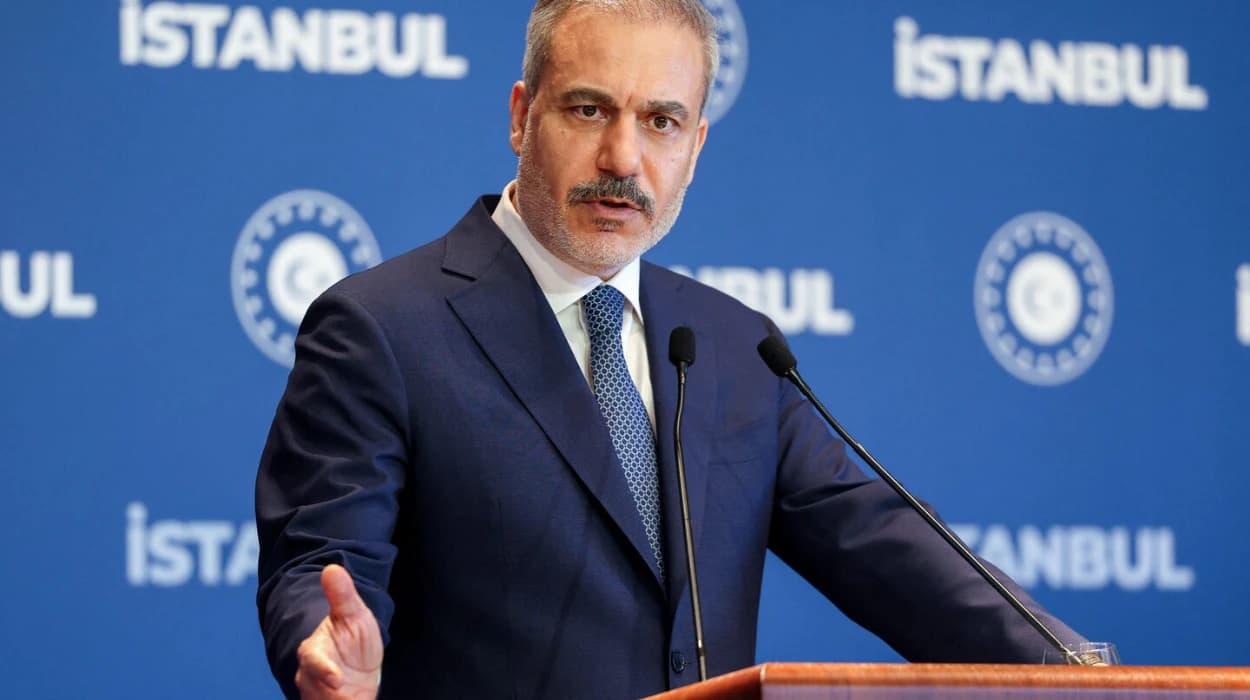Turkish Foreign Minister Mevlüt Çavuşoğlu will discuss
Israel's controversial plan to occupy Gaza City during his upcoming visit to
Egypt, aiming to engage regional actors on the escalating conflict. The move by
Israel's government, led by Prime Minister Benjamin Netanyahu, to take control
of Gaza City's largest urban centre has drawn significant international concern
and is a major escalation in the ongoing conflict.
Israel's Plan to Occupy Gaza City
As reported by Alastair McCready of Al Jazeera, Israel's
security cabinet recently approved a plan proposed by Prime Minister BenjaminNetanyahu to occupy Gaza City, the largest city in northern Gaza. This plan
represents a significant escalation in the devastating and ongoing war between
Israel and Hamas. Netanyahu earlier suggested that the Israeli military intends
to "take control of all Gaza," which implies comprehensive occupation
beyond previous military operations.
The plan is expected to involve large-scale displacement of
tens of thousands of residents amid an already worsening humanitarian crisis
marked by famine and shortages of necessities.
Turkish Foreign Minister's Role and Egypt Visit
According to a source cited in media reports, Turkish
Foreign Minister Mevlüt Çavuşoğlu is scheduled to visit Egypt with the intent
to discuss Israel's Gaza City occupation plan. This visit is part of a broader
diplomatic effort to address the escalation in Gaza and to foster regional
dialogue on the conflict's implications.
The specific choice of Egypt as a venue is strategic given
Egypt's historical role as mediator in Israeli-Palestinian conflicts and as a
neighbour sharing a border with Gaza. Turkey, under President Recep Tayyip
Erdoğan's leadership, has consistently expressed concern over Israeli military
actions in Gaza and advocated for Palestinian rights.
Regional and International Reactions
Internationally, Israel's decision to move towards
occupation of Gaza City sparks significant alarm. Various governments and
organisations have expressed worries regarding the humanitarian impact,
particularly the displacement of large civilian populations already under
siege. Israel's military moves come amid continuous hostilities and have
intensified concerns about a protracted and destructive conflict.
The United States, under President Donald Trump'sadministration, has played a complex role in Middle Eastern geopolitics
recently, including hosting leaders from Azerbaijan and Armenia to sign
brokered deals. However, direct statements concerning Gaza from US officials on
this specific occupation plan have not yet been quoted. Pro-Israel lobby groups
in the US have condemned remarks critical of Israel but detailed official US
policy on Gaza city occupation is pending clarification.
Context of the Gaza Conflict
The Gaza Strip, governed by Hamas since 2007, has been a
flashpoint of conflict for over a decade. Israeli military operations have
repeatedly targeted Hamas infrastructure, citing security concerns. The
occupation plan approved by Netanyahu's government is one of the most expansive
moves to date, pushing beyond airstrikes and limited incursions to full territorial
control.
This intensifies the already dire situation in Gaza, where
infrastructure destruction has led to widespread shortages in food, medicine,
and basic services.
Significance of Diplomatic Engagement
The scheduled discussions in Egypt involving Turkey's
Foreign Minister signify an effort among regional powers to manage the crisis
diplomatically. Turkey's involvement underscores its role as a significant
player in Middle Eastern politics and its opposition to Israeli policies
perceived as aggressive towards Palestinians.
Engaging Egypt is pivotal due to its ability to influence
both Israeli-Palestinian dynamics and maintain control over the Rafah border
crossing, Gaza's main exit point to the outside world.
- Israeli
security cabinet approves plan to occupy Gaza City, marking a marked
escalation (Al Jazeera, Alastair McCready).
- Turkish
Foreign Minister Mevlüt Çavuşoğlu to discuss this plan on a visit to Egypt,
highlighting diplomatic efforts to address the conflict (source reports).
- Broad
international concern over the humanitarian impact due to displacement and
food shortages.
- The
situation reflects a worsening Gaza conflict scenario with potential for
extensive military and civilian consequences.
- Regional
diplomacy is sought as a pathway to mitigate escalation, with Egypt and
Turkey playing central roles.
This evolving story continues to develop as diplomatic
missions proceed and the international community seeks solutions to the ongoing
Gaza crisis.
